
Covid-19 virology research
Smart Separations steals show with its Covid-19 solution at European Innovation Council’s ePitching
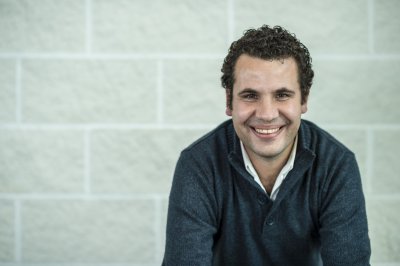
Smart Separations, a microfiltration technology company, based at the Surrey Research Park, is finalising testing on its anti-viral air transmission units which can be used to remove coronavirus and other viruses and bacteria from the air. Smart Separations has just been crowned winner of an e-Pitching session to the European Innovation Council for its nano technology-based smart coating, which destroys viruses, bacteria and mold. It can be used on air and surfaces, two of the main ways that Coronvirus spreads.
Ergomed announces provision of clinical research services for Covid-19

Located on Surrey Research Park, Ergomed plc, provides specialised services to the pharmaceutical industry. It is currently involved in a clinical research study of a monoclonal antibody for Covid-19 patients who have developed serious respiratory complications.
Covid-19 data represented sonically and musically in ‘Covid-19 Listening Project’
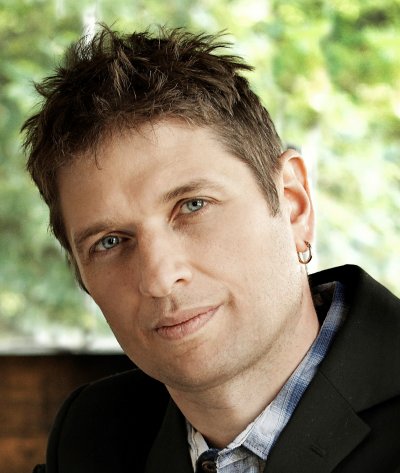
Dr Enzo De Sena and Dr Milton Mermikides (pictured) from the Department of Music and Media have set up the Covid-19 Listening Project, dedicated to the sonic and musical representation of Covid-19 data. A choral piece and a genomic-spatial realisation have already been produced using the database of the National Center for Biotechnology Information. It is hoped this will help experts learn more about the virus by identifying anomalies and other clues.
Investigating functional change of antibodies in Covid-19
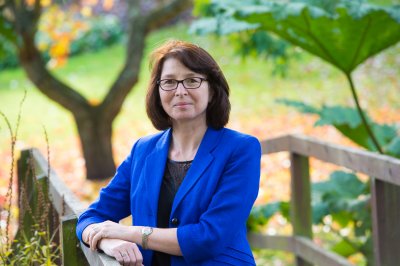
Professor Deborah Dunn-Walters (pictured) and Dr Alexander Stewart are studying blood samples from Frimley Park Hospital to characterise the dynamics of class switching in B cells during Covid-19 infection. This is where disease-specific antibodies change their function, e.g. from IgM to IgG or IgA. This will provide information to inform later studies assessing vaccine responses and may help to identify biomarkers of disease severity. Together with Dr Natalie Riddell and Dr Fernando Martinez Estrada all samples undergo immunophenotyping.
Link identified between dietary selenium and outcome of Covid-19 disease
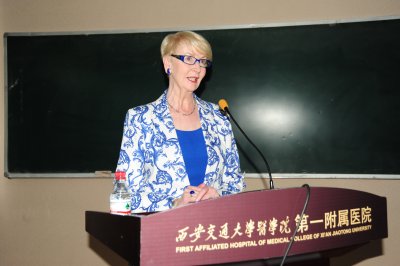
Professor Margaret Rayman (pictured) has led an international team of researchers in identifying a link between the Covid-19 cure rate and selenium status. Selenium is an essential trace mineral known to affect the severity of a number of viral diseases in animals and humans; its intake varies markedly across China. The Covid-19 cure rate in different Chinese cities was found to be significantly associated with selenium status, measured by the amount of selenium in people’s hair in those cities.
Microbiologists work to understand basic SARS CoV 2 biology with a view to identifying therapeutic targets
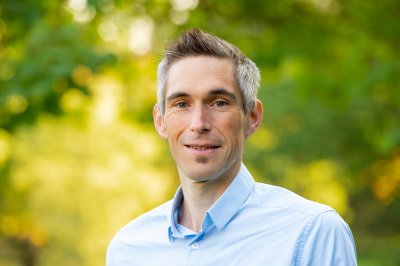
Professor Nicolas Locker (pictured) is studying how viral proteins affect the stress response pathways in the infected host to identify possible targets for intervention against SARS-CoV-2. This can further help better understand how the virus adapted from bat to human. Professor Locker has also contributed to efforts led at the Vet School by Dr Dan Horton and Professor Roberto La Ragione, in developing novel diagnostic tests and supports the NHS testing by providing home-brewed detection reagents.
Developing a point-of-care Covid-19 test

Dr Anil Fernando (pictured) from CVSSP is working with Professor Roberto La Ragione, Dr Dan Horton and colleagues from the School of Veterinary Medicine and scientists from Lancaster University and Brunel University London to develop an inexpensive, rapid, point-of-care diagnostic test that can inform people if they have Covid-19 in 30 minutes. A mobile-based app for the device can control it, track users’ movements and contact anyone who has had a close interaction with a diagnosed person.